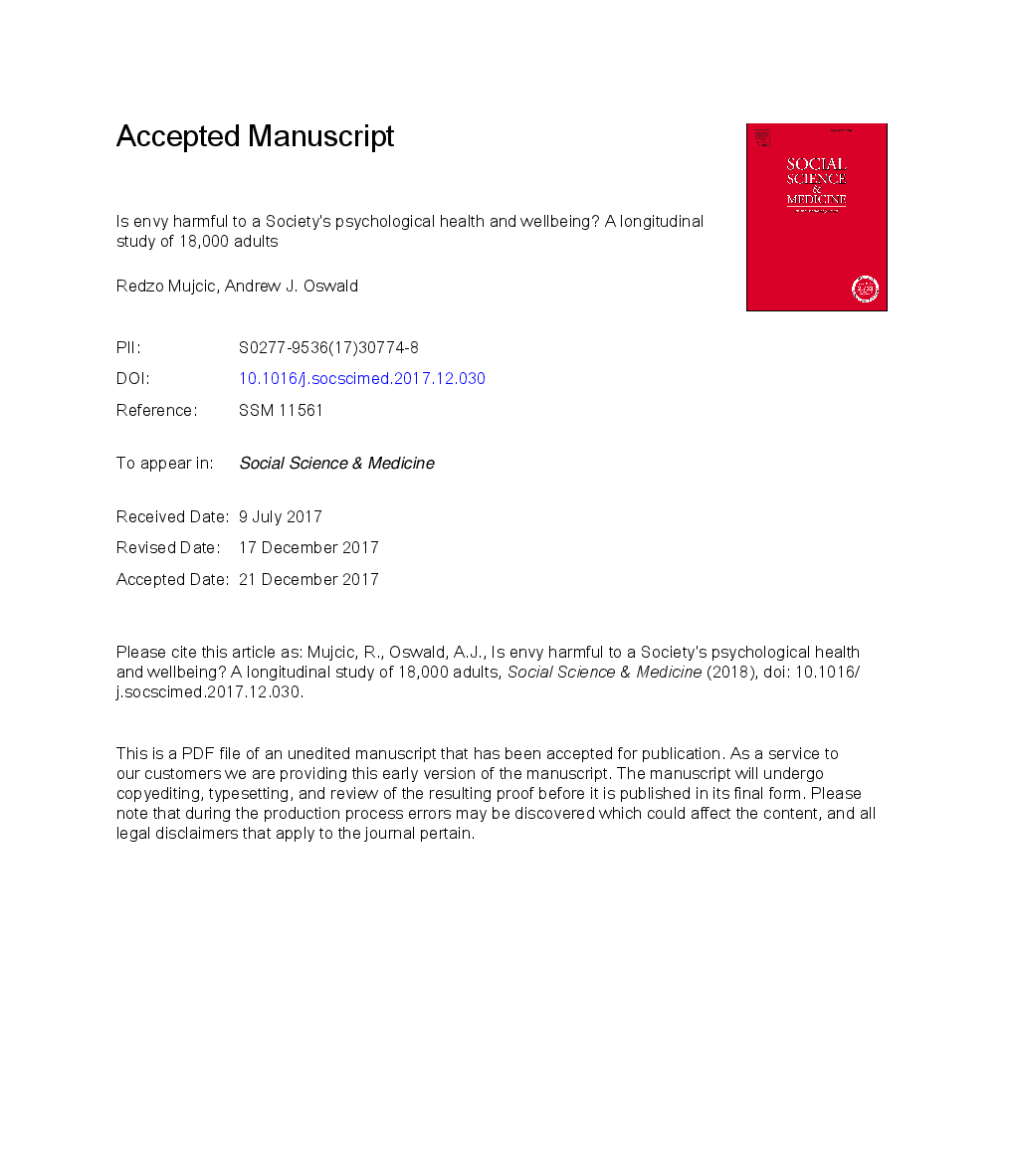ترجمه فارسی عنوان مقاله
حسادت به سلامت روحی و سلامتی جامعه مضر است؟ مطالعه طولی 18000 بزرگسال
عنوان انگلیسی
Is envy harmful to a society's psychological health and wellbeing? A longitudinal study of 18,000 adults
| کد مقاله | سال انتشار | تعداد صفحات مقاله انگلیسی |
|---|---|---|
| 131767 | 2018 | 54 صفحه PDF |
منبع

Publisher : Elsevier - Science Direct (الزویر - ساینس دایرکت)
Journal : Social Science & Medicine, Volume 198, February 2018, Pages 103-111

